Maverick Moments
These stories highlight students, faculty, staff, and/or events from Student Affairs Offices fostering big ideas and real-world thinking on campus and in the community.
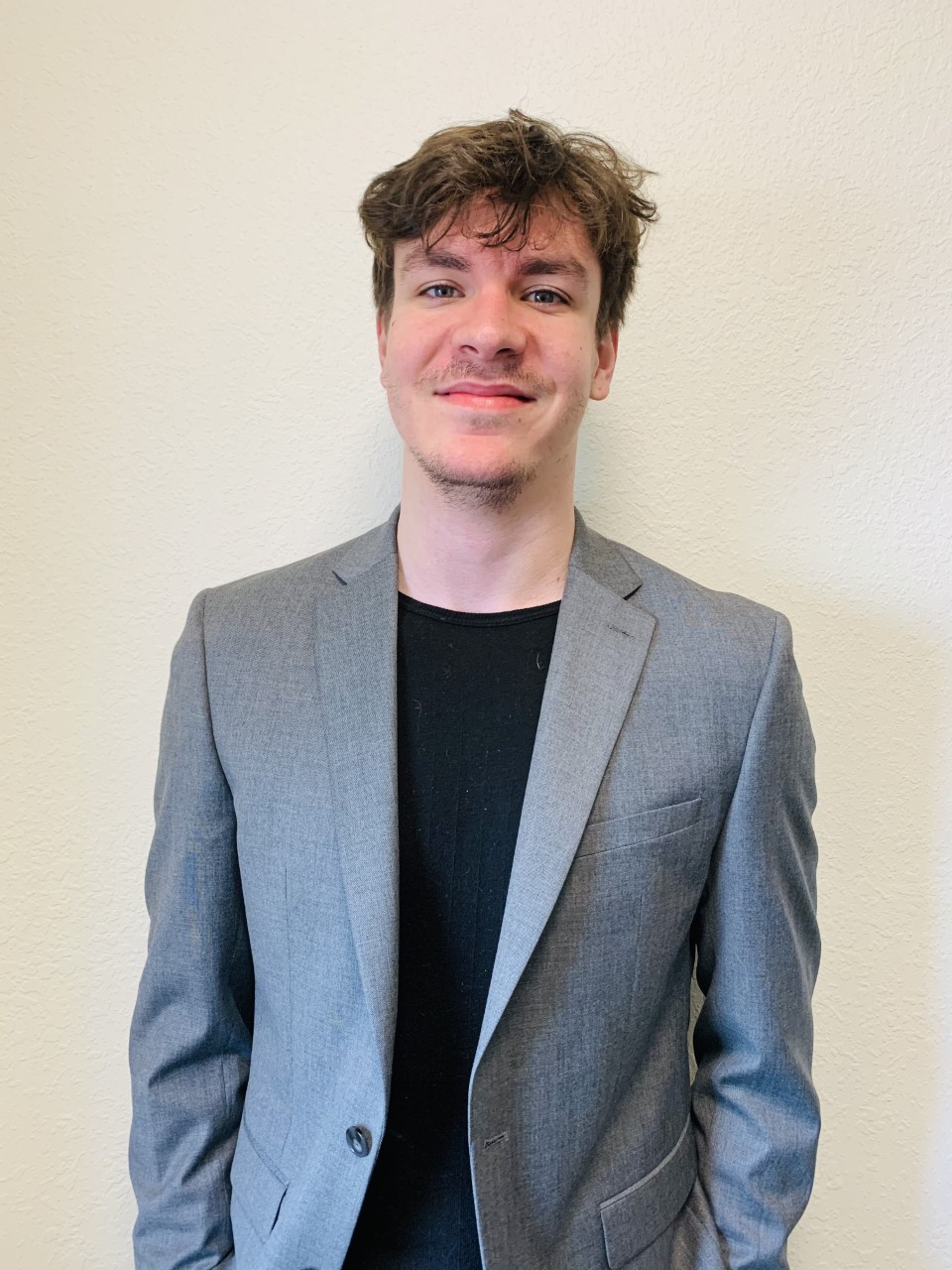
A Steppingstone for Greater Things
Gabe Miller, a senior Philosophy, Politics and Economics (PPE) major from St. Paul, Minnesota, transferred to Minnesota State University, Mankato after spending his first year at a community college. For him, community college provided the entry he needed to focus on his grades and thrive in higher education.
Full Story + Show Less –Deciding what college to attend can be one of the biggest decisions that someone makes in their life. A good student-college fit can provide numerous opportunities to succeed during and after college. A poor student-college fit can lead to dropout, lost experiences, misdirected investment or the need to transfer schools.
According to the National Student Clearinghouse Research Center, 38 percent of first-time college students will transfer schools, representing over 1 million transfer students. Although the decision to transfer colleges is difficult, it can provide a better student-college fit and keep students on track to graduate.
Gabe Miller, a senior Philosophy, Politics and Economics (PPE) major from St. Paul, Minnesota, transferred to Minnesota State University, Mankato after spending his first year at a community college. For him, community college provided the entry he needed to focus on his grades and thrive in higher education.
During his year at the community college, Miller’s GPA jumped almost an entire point from what it was in high school. He wasn’t completely happy though; something was missing. He hadn’t made the friends he had hoped to and didn’t feel a part of a college community. After much consideration, he decided to transfer schools.
“When I came to Mankato, it was way different. Specifically, the first week I was here… the sun was shining, and the campus was bustling and busy. The atmosphere wasn’t the same. Everyone was so happy to be on campus. It just seemed like the college experience that I was missing,” Miller says.
When Miller transferred in, he wanted to double major in Psychology and Political Science; then he met a student ambassador at orientation who told him about the PPE major. He knew right away that it was going to be a good fit.
The PPE major is one of only 50 such programs nationwide and the only one in Minnesota. The focus of the major is on the dynamic relationships between the economic, political and legal systems of society and the relationships that require the analytical methods of all three disciplines to be understood fully: perfect for someone who wants to go into law. Although Miller hadn’t always wanted to be a lawyer, he found a passion in philosophy and discussing the deeper meanings in life.
“Every single piece of my major will help me with law school,” he says. “Being able to know more about each thing is a huge advantage over others applying to law school.”
Now, not only is Miller set to graduate a year early thanks to his hard work, but he is also currently applying to his dream law schools including the University of Minnesota, the University of Michigan, Stanford, NYU, the University of Chicago and Mitchell Hamline.
In his last two years at Minnesota State University, Mankato, Miller has taken advantage of numerous resources on campus. Despite being busy studying for the LSAT and applying to law school, he also balances a work-study position at the Career Development Center and is a member of the pre-law society and transfer student honors society. He even worked on a congressional candidate’s campaign over the summer to gain political experience. All of these things have helped him get to the place that he is today.
“I get to apply to my dream schools, because I went to Mankato,” he says.
Miller applied and could have transferred to a few other universities in Minnesota, but there was something about Mankato that stood out to him. The size of the institution provided him with the ability to get to know all his professors, which he didn’t feel like he would have been able to do at a larger university.
“I’m so happy that I came to a school that’s big enough to have the college experience, but small enough, especially in my program, where I get to know my professors and my classmates and be in this classroom setting where I feel like I can actually learn and be a part of discussions,” he says.
He has really enjoyed smaller classes and getting to participate in those deep discussions he loves so much. When applying for different law schools, he even felt comfortable asking any one of his professors for a recommendation, since he had gotten to know all of them personally.
Down the road, Miller not only wants to become a successful lawyer, but he wants to give back. He wants to support his family and friends who have supported him on his journey and eventually run his own firm so that he can give back to his community. His dream is to make a foundation for students on the west side of St. Paul, where he’s from, to educate them on financial literacy, applying for college and financial aid to help them get out of poverty.
What was once a decision to transfer colleges to make new friends and be a part of a college community has now turned into the steppingstone for Miller to move on to even greater things.
“I got my college experience. I’m so happy that I came here. I honestly am.”
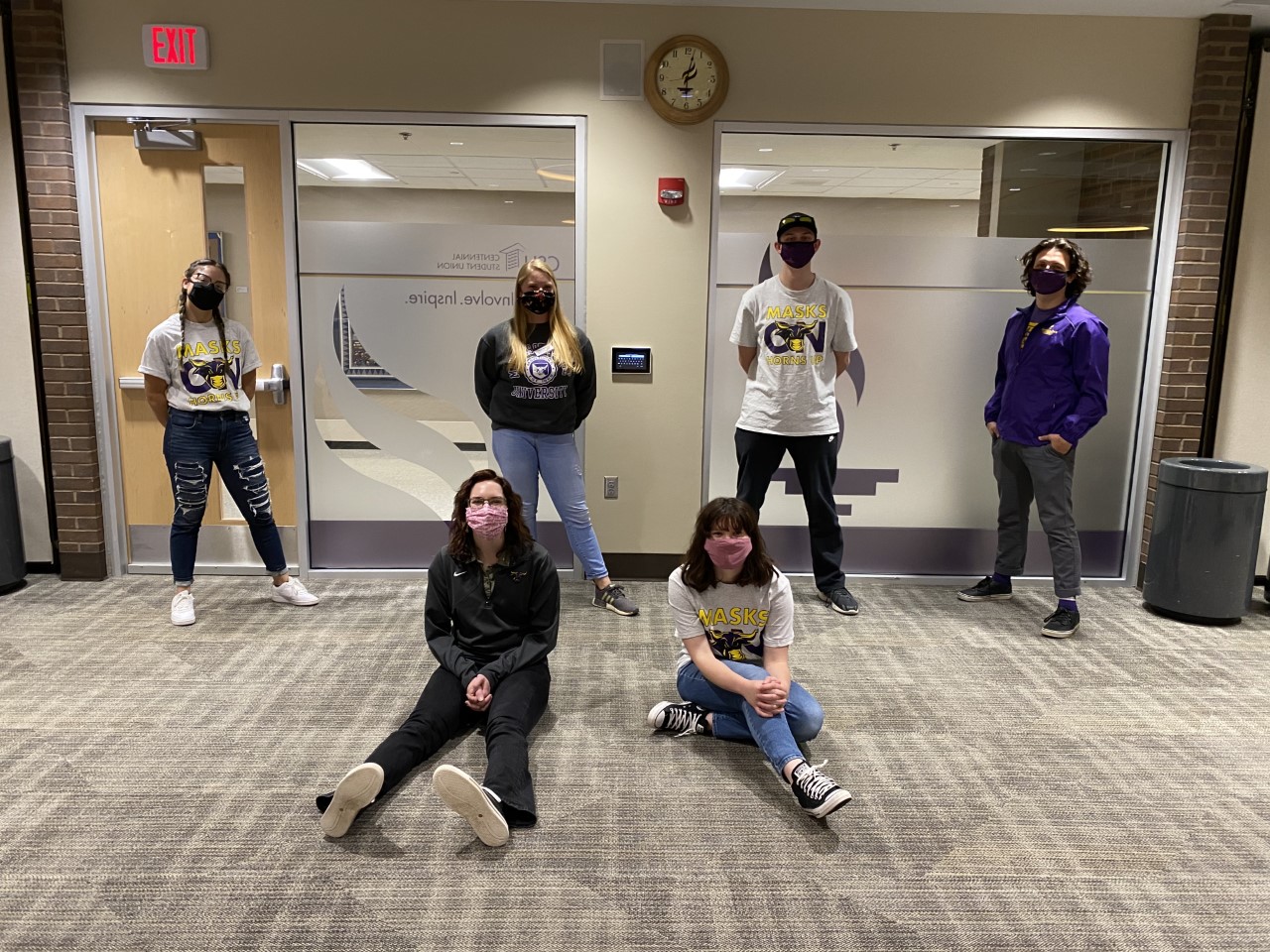
The Sky's The Limit
Being involved in campus activities can provide students myriad benefits during their college careers. By joining a student organization on campus, students are able to build relationships, improve their leadership abilities, work on their interpersonal skills, expand their interests and feel a part of their university’s community. At Minnesota State University, Mankato, there are over 250 registered student organizations (RSOs) that students can join.
Full Story + Show Less –Being involved in campus activities can provide students myriad benefits during their college careers. By joining a student organization on campus, students are able to build relationships, improve their leadership abilities, work on their interpersonal skills, expand their interests and feel a part of their university’s community. At Minnesota State University, Mankato, there are over 250 registered student organizations (RSOs) that students can join.
While these organizations can provide numerous benefits, it can also be challenging for students to balance being a member of these groups or running them with everything else that is going on in their busy lives.
In Fall 2019, a group of students along with Emi Menk, assistant director of Student Activities, decided there was a need to form a group that could help these students find the optimal opportunities through their organizations. Additionally, it could be a resource for students on how to run an organization, which many are doing for the first time.
As a result, the Maverick Involvement Team (MIT) was born. According to Kathryn Wirtanen, MIT’s Program Operations Coordinator, “the main goal of the Maverick Involvement Team is to enhance the leadership skills of students, but also to connect them with peer-to-peer advising with RSO officers, and to provide workshops and leadership development.”
Wirtanen, a junior Environmental Science major from Eau Claire, Wisconsin, has been actively involved in student organizations since becoming a Maverick. Wirtanen came to Minnesota State University, Mankato with hopes of finding volunteer opportunities, so she joined a couple of organizations her first year as a member. Then, she engaged with officers to inquire about leadership positions.
Wirtanen joined multiple organization’s leadership boards and worked her way into becoming the president of Colleges Against Cancer, the president of the Environmental Sustainability Organization and the Program Operations Coordinator of the Maverick Involvement Team
Wirtanen has gained a lot from her experiences in student organizations. “Being involved in even one student organization can really increase a lot of opportunities for [students], whether it be a social group or major group, whatever type of group there is, there is something to pick from. Just joining one group can open so many opportunities for you,” she says.
With such a wide range of student organizations at Minnesota State Mankato, there truly is something for everyone. Whether it be in Fraternity and Sorority Life, Student Government, religious groups, sport clubs, language clubs, honors societies, political groups, art clubs or groups that meet based on hobbies, there are so many opportunities to get involved.
According to Wirtanen, being in a student organization can enhance “the college experience” and help students grow personally and professionally, which helps students succeed not only at Minnesota State Mankato, but in their careers after they graduate. That is exactly what the Maverick Involvement Team is hoping to accomplish.
The team provides numerous resources to do this including peer advising for RSO officers and student leaders, Leadership U workshops each week, RSO officer training, involvement fairs, RSO socials, teambuilding workshops, a student leadership conference, student leadership awards and they will also be co-sponsoring the U-Lead Conference with other organizations on campus.
Wirtanen holds dear every value of the Maverick Involvement Team, but she especially loves the idea of empowering individuals and organizations and helping students connect.
“I really like the idea of having RSOs connecting with each other to collaborate on different events, fundraising efforts or campaigns. Whatever they choose to do, the sky’s the limit. If you have the interest and the numbers, you can really grow the passion that you have. By supporting students and the initiatives they want to take, we can see those groups go farther,” she says.
Although the group is still pretty new and COVID-19 has forced it to get even more creative with student opportunities, the group is still so excited for what’s to come.
“Establishing a new group and new program can be challenging, and while that challenge has been amplified by the pandemic, the students involved with MIT have really stepped up and taken initiative to figure out how they can make the most of the situation…They’ve also really supported and uplifted each other throughout the process – as an advisor it has been an absolute joy to see how they have embarked on this process, how they’ve brought their vision to life, and the connections that have resulted from the program,” Menk says.
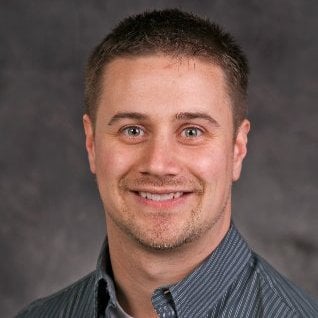
The First Face of the University
Summer orientation is usually just the beginning of the excitement surrounding a new upcoming school year. This year, however, the office of New Student and Family Programs had to think outside of the box and move programming completely online as a COVID-19 precaution. As a result, the Maverick Online Orientation and Registration (MOOR) programming was created.
Full Story + Show Less –Summer orientation is usually just the beginning of the excitement surrounding a new upcoming school year. Typically, students can sign up for a one- or two-day orientation to prepare for their first fall semester at Minnesota State University, Mankato. During their visit to campus, they register for classes, receive their MavCard, meet other students and talk to different departments on campus.
This year, however, the office of New Student and Family Programs had to think outside of the box and move programming completely online as a COVID-19 precaution. As a result, the Maverick Online Orientation and Registration (MOOR) programming was created on the University’s educational platform, Desire2Learn, or D2L, where students typically go for class-related items like viewing their syllabus, turning in assignments and checking their grades.
Jeremy Riesenberg, Assistant Director of Orientation and Transition Programs, spent the early summer months trying to figure out just how to use an educational platform to create an interactive and informational orientation.
“My main goal for orientation is building excitement for [the students], that they’re looking forward to starting college,” Riesenberg says. “I hope that orientation is their first chance to see what they’re in for, the environment they’ll be in and the other fantastic students that they’ll meet. I hope that by the time everyone leaves orientation that they’re like ‘I can’t wait for this to all start again in the fall.’”
Riesenberg’s final product included weekly modules that were posted every Monday morning over a six-week period that provided students with information about campus resources, videos from current students, virtual resource fairs and fun activities for students to get to know the University better.
With the help of student Orientation Peer Assistants, known as OPAs, the office successfully implemented the new orientation style online. OPAs, like Lizzie Putnam, a junior Special Education major from Las Vegas, Nevada, were tasked with helping students transition to campus, while never actually getting to meet them physically.
“I feel like we’re the first face at the University that the students see and we’re also the student perspective, which I think is really important… There’s 16 of us and we help students with registration, we do the activities, and we perform a welcome dance right at the beginning which they always love on the two days,” Putnam says.
Although OPAs were bummed they didn’t get to perform their annually coordinated dance, they still sprang into action to help incoming students. Students were asked to fill out surveys throughout their orientation experience, which the Peer Assistants read through and responded to individually. Additionally, they held office hours for students to attend, hosted virtual labs for building relationships with other students and even hand packed “swag envelopes” with Maverick themed t-shirts, flags and lanyards to provide students with Maverick gear before they even moved to the Mankato area. Some days, they spent up to 12 hours on Zoom, providing resources for incoming students.
“The OPAs did a great job adapting, and I was very proud of them. They made the best of it, and I appreciated all of the work they did. They were the pulse of making it run, just like they are when they’re here in person,” says Riesenberg.
Overall, the online platform was a success. Students seemed to really engage in the process, despite the fact that it may not have been exactly what they expected, and participation was high throughout the summer.
“I was happy to see that [the students] were still engaging,” Riesenberg says. “I was worried about that at first. But I also thought, ‘They had such a crazy end of their high school experience that maybe they’re looking for some normalcy and thinking about their next chapter.’”
With the uncertainty expected to continue over at least the next few months, orientation for students starting in the spring semester will also be done through the D2L online format. Fortunately, though, the orientation modules will continue to be used for this process and will stay open on D2L for the entirety of this next school year to provide students with a way to refer back to resources when they need it.
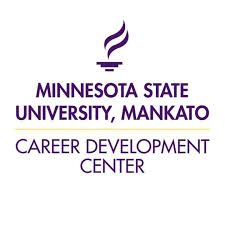
Once a Maverick, Always a Maverick
“We know that many of our Maverick alumni and their families have been impacted by job loss, and we thought it was important to remind our alumni that we are here to help and share some resources that are available through the University,” says Pamela Weller, the director of the Career Development Center.
Full Story + Show Less –Over the last five months, COVID-19 has affected just about every aspect of life as we know it. One of the most severely impacted areas is the labor market. The United States economy has lost an unprecedented number of jobs, shattering all previous unemployment records—even those of the Great Depression.
One center on campus has been working diligently to help Minnesota State University, Mankato students and alumni with the tremendous job losses that have occurred: the Career Development Center (CDC).
When the CDC realized what was happening, it sprang into action to brainstorm what it could do to aid students and alumni during this time. The Center recognized that there are many unique challenges related to careers and job searching during a global pandemic. As a result, the CDC went to work and gathered lists of employers still hiring, pandemic specific career resources and job searching tips for students and alumni that has continuously been updated with new information.
The Center’s website provides information on scheduling individual appointments to go over resumes, cover letters and LinkedIn profiles. Students and new graduates can also sign up for practice interviews, graduate school planning and career assessments to guide them with their next career move.
The CDC has made a point to specifically reach out to all Maverick alumni through email communication, as well, to make sure they know that the office is available to help.
“We know that many of our Maverick alumni and their families have been impacted by job loss, and we thought it was important to remind our alumni that we are here to help and share some resources that are available through the University,” says Pamela Weller, the director of the Career Development Center.
Since then, the Center has been actively working to provide any information that could be beneficial, like which employers are still hiring and which are experiencing job freezes, how to get hired remotely and jobs skills needed to succeed in a post corona-virus world. The CDC wants to make sure that alumni know that even though they have graduated, they are still a part of the Maverick family and the University is still a resource for them.
“The mission of the Career Development Center is to ‘educate, equip and empower students and graduates to successfully explore, develop, and manage their career paths for a lifetime.’ We care about the well-being and success of our graduates,” says Weller.
As a result of COVID-19, the Center has transitioned the bulk of its resources, programs and services to an online delivery method. A huge benefit of this is that students and alumni can now access office resources 24/7 from wherever they are located. Many great career resources can be found on their website here to help during this unprecedented time.
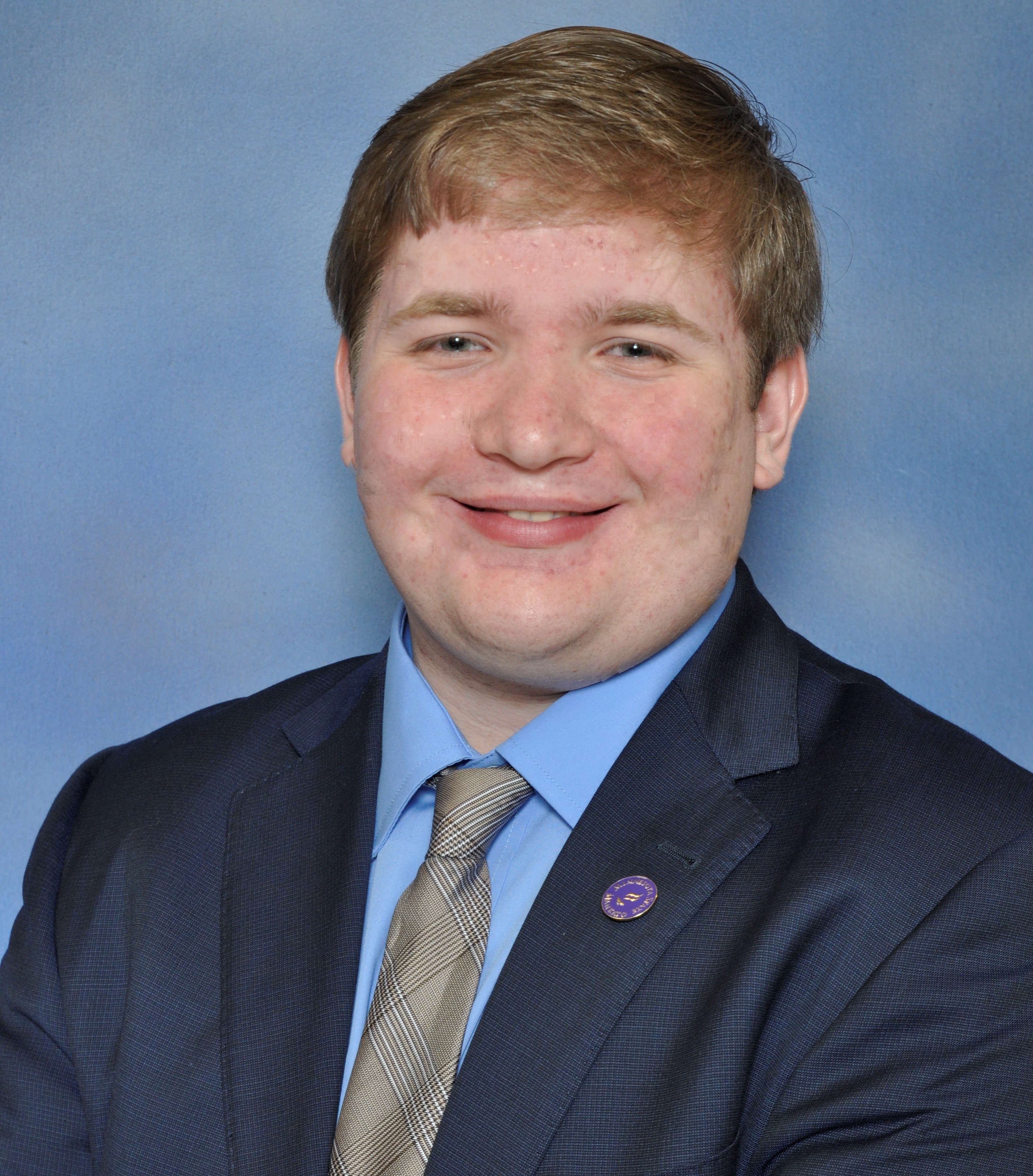
Becoming the 88th Student Government President
Trenne hopes to leave his legacy at Minnesota State Mankato by helping advance the student body and addressing ever-changing student needs. He hopes that he can make a difference at the University not only academically, but also in student life to create long-term accomplishments that set the University forward in addressing student needs.
Full Story + Show Less –This year’s Student Government election was unlike any other in recent Minnesota State University, Mankato history. Because of the COVID-19 pandemic, candidates had to tackle unforeseen obstacles, such as campaigning completely online, unlike their predecessors who were able to physically campaign on campus.
Although these unprecedented times called for creative solutions, it didn’t hinder the success of the winning party: Empowering Mavericks. Thanks to dozens of campaign volunteers, the party reached out to thousands of students to ensure that their message was heard through online candidate forums, social media postings and email communication.
Andrew Trenne, a junior Political Science major and History and Business Law minor, was elected as Minnesota State Mankato’s 88th Student Government president.
Trenne, who is originally from Chaska, decided to come to Minnesota State Mankato because he thinks the campus is the best in the state and he enjoys the size of the university—which he says allows him to meet new people while still having small and attentive class sizes.
Although it’s hard to believe now after his victory, Trenne didn’t think that he’d ever become the president of the student body. He dreamed of it but says that he was shy and had little involvement in high school, so he never expected to be in the position that he is today.
“I always wanted to become president but never thought I would get to this point. My earliest memory of this was when I was a freshman; I went to the new student rally during Welcome Week. I saw the then Student Body President addressing my incoming class, and I remember whispering to my friend, ‘I want to be him,’ but I only considered it a dream and something I didn't think I could reach,” he says.
Despite his humble journey, Trenne’s work has not gone unnoticed. Mark Constantine, director of the Centennial Student Union and Student Activities, has had the pleasure of working with Trenne over the last three years in his positions in the Residence Hall Association, Student Union Board and Student Government. He says that Trenne is not the kind of person who looks for a pat on the back; rather, his involvement comes from his authentic love for the University.
“He [has] worked tirelessly for the students at Minnesota State Mankato. Talk about taking risks and stepping up, Andrew is doing that on a daily basis. Whether he is talking to President Davenport, Vice President Jones or a dean of a college, Andrew is at the forefront of most student movement on this campus,” says Constantine.
No matter how big or small of a decision the University makes, Trenne feels that students should be right there at the table with administration to provide input on issues that affect them daily.
“If we aren't a part of the decision-making process on things like tuition, student fees, University policies and even the COVID-19 conversations, then our issues as students won't be addressed or heard,” he says.
Trenne hopes to leave his legacy at Minnesota State Mankato by helping advance the student body and addressing ever-changing student needs. He hopes that he can make a difference at the University not only academically, but also in student life to create long-term accomplishments that set the University forward in addressing student needs.
Although he never expected to make it this far, Trenne is proud of himself for the accomplishments that he has made during his time as a Maverick and is excited to see what he can do as the 88th Student Government president.
“I truly want to show people that anyone can do it if you just put time into it and really work to grow yourself as a person. Minnesota State University, Mankato is a great place to do that, and I am super proud of our University,” Trenne says.

